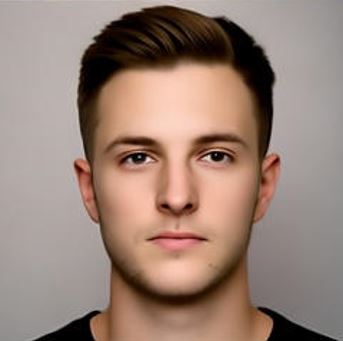Documentary highlights the dark history of right-wing extremism at universities
On October 10th, the documentary “Akademische Abgrunde” premiered at the Stadtkino Wien. It sheds light on right-wing extremism at universities and encourages people to examine history.
Documentary highlights the dark history of right-wing extremism at universities
The premiere of the elaborate documentary film “Academic Abysses – Right-Wing Extremism in the Lecture Hall” took place on October 10th at the Stadtkino in Vienna. The film was made by the team consisting ofAndreas Filipović,Samira FuxandLuke Ellmerproduced and aims to critically illuminate the fascist past at Austria's universities. The project was realized in collaboration with the Austrian Students' Union (ÖH).
Following the screening, a lively panel discussion took place, including the former finance ministerFerdinand LacinaandBianca Fightfrom the Documentation Archive of the Austrian Resistance (DOEW). Lacina, who spoke about a serious chapter in the university's history, recounted his student experience with the professor at the timeTaras Borodajkewycz, who fell into disrepute due to his controversial statements.
Important historical revelations
A central theme of the film was the dismissal of Borodajkewycz, who taught at the University of World Trade from 1955 to 1971. Lacina's memories of the professor's lectures, which, among other things, praised Hitler's speech on March 15, 1938, are particularly explosive. These experiences led Lacina to reach out to his fellow studentsHeinz Fischerwho later became Federal President. The documentary shows interviews with the two in which they deal with the questionable speeches and their effects.
In a critical debate that was triggered by the Lacina notes, Fischer reported on Borodajkewycz's behavior in social democratic newspapers. Despite serious allegations, he left the sources of his information unnamed to protect Lacina's academic future. However, this led to a legal dispute in which Fischer was fined for insulting his honor.
The demonstrations organized by Fischer and others were directed against right-wing extremism at universities, particularly against Borodajkewycz. One of these demonstrations ended tragically in 1965 when the resistance fighterErnst Kirchwegerwas seriously injured by a right-wing extremist activist. Kirchweger died of his injuries two days later. Despite all the protests, Borodajkewycz was not forced to retire until 1971.
A significant responsibility
Bianca Kämpf from DOEW, who also took part in the discussion, emphasized the importance of engaging with history at universities. She explained that it is crucial to recognize continuities and to take responsibility or identify a lack of responsibility. Their statements underlined the relevance of the documentation for understanding current social challenges.
The film also addressed the conflicts in the 1970s at the University of Vienna, when the National Democratic Party (NPD) and the New Right Action (ANR) tried to expand their influence. The SPÖ student representative, supported by their lawyerGabriel Lansky, took legal action to stop these efforts. Lansky invoked the ban on Nazi successor parties, and the case eventually reached the Constitutional Court.
Lansky, who is in conversation withBruno Kreiskytried to collect evidence, found that he too encountered difficulties. Kreisky could not bring himself to sign the statement that there should be no National Socialist parties in Austria, which shocked Lansky. This episode illustrates the complex political conditions of that time and the challenges in the denazification of Austrian society.
The discussion after the film showed how important it is to critically examine the past and learn lessons from it. The questions and answers ensured an exciting exchange among those present and made it clear that the topic of right-wing extremism still plays an important role in the academic and public debate.

 Suche
Suche
 Mein Konto
Mein Konto
